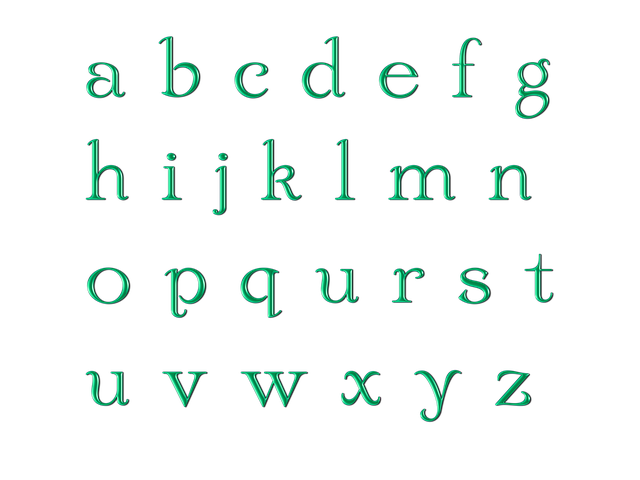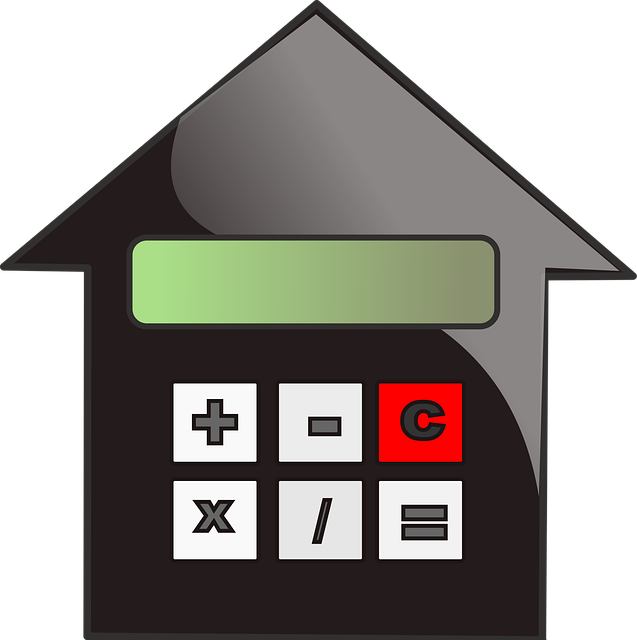Category: Mortgage-Types
Mortgage-Types: Navigating the Global Financial Landscape
Introduction
In today’s complex financial environment, understanding mortgage types is more crucial than ever for both individuals seeking homeownership and investors looking to diversify their portfolios. A mortgage type refers to the specific structure and terms of a loan used to purchase or secure a property, with each variant offering unique benefits and considerations. This comprehensive guide aims to demystify the world of mortgage types, exploring their historical evolution, global impact, economic implications, technological innovations, regulatory frameworks, challenges, and future prospects. By delving into these aspects, readers will gain valuable insights into how mortgages have shaped the real estate market and continue to influence personal finance worldwide.
Understanding Mortgage-Types: Unlocking the Basics
Definition and Core Components
At its core, a mortgage is a type of loan used primarily for purchasing or securing real estate. Mortgage types differ based on various factors, including the lender (e.g., banks, credit unions), the borrower’s creditworthiness, the property type, and repayment terms. The primary components of a mortgage include:
- Principal: The initial amount borrowed to purchase the property.
- Interest: The fee charged by the lender for lending the money, typically expressed as a percentage of the principal.
- Repayment Schedule: The timeline over which the borrower repays the loan, usually in monthly installments.
- Collateral: The asset (in this case, the property) that secures the loan, ensuring repayment.
Historical Context and Evolution
Mortgages have a rich history dating back to ancient civilizations. In early societies, land ownership was often tied to social status and wealth. As trade and commerce grew, so did the need for more complex financial mechanisms to facilitate large-scale property transactions. The modern mortgage as we know it today has evolved significantly over centuries:
- Medieval Europe: Early forms of mortgages emerged during the Middle Ages, where peasants would borrow money from lords to purchase land, often with the land itself serving as collateral.
- Renaissance and Beyond: With the rise of banking in Italy and other European centers, more sophisticated lending practices developed, laying the groundwork for modern mortgage structures.
- 18th and 19th Centuries: The Industrial Revolution led to increased urbanization and a growing demand for housing, prompting the development of formal mortgage markets in many countries.
- 20th Century: This era witnessed significant advancements, including the introduction of fixed-rate mortgages, government-backed loans (e.g., FHA loans in the US), and the rise of subprime lending.
Significance in the Broader Landscape
Mortgage types play a pivotal role in various economic sectors:
- Real Estate Market: They facilitate homeownership, influence property prices, and drive market demand.
- Financial Services: Lenders offer a wide array of mortgage products, contributing to the growth of the banking and financial industries.
- Economic Growth: Access to affordable mortgages stimulates economic activity by encouraging investment in housing and infrastructure.
- Wealth Creation: Homeownership is often considered an asset, and successful mortgage management can lead to wealth accumulation over time.
Global Impact and Trends
International Influence
Mortgage types have left a profound mark on the global financial scene, with variations tailored to suit diverse cultural, economic, and legal contexts:
- North America: The United States and Canada have well-established mortgage markets characterized by competitive lending practices and a wide range of loan products.
- Europe: European countries exhibit diverse mortgage landscapes, with some nations embracing traditional fixed-rate mortgages while others promote innovative digital lending platforms.
- Asia: Rapid urbanization in Asia has fueled housing demand, leading to the emergence of robust mortgage industries in countries like China, Japan, and Singapore.
- Emerging Markets: Nations in Latin America, Africa, and Southeast Asia are witnessing increasing mortgage penetration as economic growth and urbanization accelerate.
Key Global Trends
Several trends shape the global mortgage landscape:
| Trend | Description | Impact |
|---|---|---|
| Digital Transformation | The rise of online lenders, mobile banking apps, and digital closing platforms is revolutionizing how mortgages are procured and managed. | Enhances accessibility, streamlines processes, reduces costs for borrowers and lenders. |
| Low-Interest Rates | Many central banks have implemented accommodative monetary policies, leading to historically low-interest rates, making borrowing more affordable. | Stimulates housing demand, encourages investment in real estate. |
| Sustainability Focus | There is a growing emphasis on environmentally friendly mortgages, with lenders offering green loans for energy-efficient properties. | Promotes sustainable building practices, supports the transition to renewable energy sources. |
| Alternative Lending | Non-traditional lenders, including peer-to-peer (P2P) platforms and fintech companies, are gaining traction, providing unique mortgage options. | Offers flexibility, caters to underserved borrowers, challenges traditional banking models. |
Economic Considerations: Market Dynamics and Investments
Market Dynamics
Mortgage types significantly influence the dynamics of the real estate market:
- Supply and Demand: The availability of various mortgage products can either tighten or loosen credit conditions, impacting property prices.
- Interest Rate Sensitivity: Changes in interest rates have a direct effect on mortgage affordability, affecting both borrowers and lenders.
- Default Risks: Lenders assess borrower risk through credit scoring and loan-to-value ratios, determining interest rates and terms accordingly.
Investments and Mortgage-Backed Securities (MBS)
Mortgages are often packaged and sold as investments:
- Mortgage Lending Portfolio: Lenders hold a diverse range of mortgages, which can be sold to investors seeking income from principal and interest payments.
- Mortgage-Backed Securities (MBS): These are financial instruments backed by a pool of mortgages, allowing investors to invest in residential or commercial real estate without direct property ownership. MBS provide liquidity to the mortgage market and offer investment opportunities with varying risk and return profiles.
- Government-Backed Loans: In many countries, government agencies (e.g., Fannie Mae, Freddie Mac in the US) guarantee certain mortgages, reducing credit risk for investors.
Technological Innovations: Digital Lending Revolution
Disruptive Technologies
The digital age has brought about significant disruptions in the mortgage industry:
- Online Lending Platforms: Digital lenders offer mortgages entirely online, providing a convenient and often faster alternative to traditional banks.
- Artificial Intelligence (AI) and Machine Learning: AI algorithms enhance credit scoring by analyzing vast data sets, enabling more accurate risk assessment.
- Blockchain Technology: This distributed ledger technology has the potential to streamline loan origination, reduce fraud, and improve transparency in the mortgage process.
- Mobile Banking Apps: Borrowers can now apply for mortgages, track their loan progress, and manage repayments through dedicated mobile apps.
Benefits and Challenges
Digital lending offers several advantages:
- Accessibility: Online platforms make mortgages more accessible to remote or underserved populations.
- Speed and Efficiency: Digital processes reduce paperwork, underwriting time, and overall loan duration.
- Cost Savings: Lower operational costs for lenders can be passed on to borrowers in the form of lower interest rates or reduced fees.
However, challenges include:
- Regulatory Compliance: Digital lenders must navigate complex regulatory frameworks while ensuring compliance with data privacy and security standards.
- Consumer Protection: Protecting borrowers from fraudulent activities and ensuring fair lending practices is crucial in the digital space.
- Data Security: Handling sensitive financial data requires robust cybersecurity measures to safeguard borrower information.
Regulatory Frameworks: Ensuring Fair Lending
Legal and Compliance Aspects
Mortgage types are subject to extensive regulations aimed at protecting borrowers, promoting transparency, and maintaining stability in the financial system:
- Consumer Protection Laws: These regulations ensure fair lending practices, prohibit discriminatory housing practices, and provide borrowers with clear terms and conditions.
- Truth in Lending Act (TILA): In many countries, TILA requires lenders to disclose all costs associated with a mortgage, enabling borrowers to make informed decisions.
- Anti-Money Laundering (AML) and Know Your Customer (KYC) Regulations: These measures help prevent illegal financial activities and ensure lenders know their customers’ identities and funding sources.
- Mortgage Origination Standards: Regulators set guidelines for loan qualification, document verification, and appraisals to mitigate defaults and fraud.
Global Regulatory Comparison
Regulatory approaches vary across jurisdictions:
- United States: The Consumer Financial Protection Bureau (CFPB) oversees consumer protection, while various federal agencies regulate specific aspects of mortgage lending.
- European Union: The EU’s Capital Requirements Directive (CRD) sets standards for bank capital and stress testing, impacting mortgage lending practices.
- Japan: The Japanese government has implemented strict regulations to control housing prices and prevent speculative borrowing.
- China: The People’s Bank of China employs macroprudential measures to monitor and regulate the mortgage market, aiming to maintain financial stability.
Challenges and Considerations: Overcoming Barriers
Common Mortgage Concerns
Mortgage types often face several challenges and considerations:
- Creditworthiness Assessment: Accurately evaluating borrower creditworthiness is crucial, as it influences interest rates, loan terms, and default risks.
- Default Management: Lenders must develop effective strategies for handling mortgage defaults, including foreclosure processes and debt collection.
- Interest Rate Fluctuations: Changes in market interest rates can impact borrowers’ repayment capacity, leading to potential delinquencies.
- Affordability Concerns: Accessing affordable mortgages is a global challenge, especially for first-time homebuyers and low-income earners.
Addressing Barriers
Several strategies can help overcome these challenges:
- Credit Scoring Models: Developing sophisticated credit scoring models that consider alternative data sources can improve borrower assessment.
- Community Engagement: Lenders can partner with community organizations to offer financial education, targeting underserved populations.
- Government Intervention: Policy interventions, such as down payment assistance programs or interest rate subsidies, can make mortgages more accessible.
- Digital Inclusion: Efforts to bridge the digital divide and ensure access to online banking services are essential for digital lending success.
Conclusion: Towards a Sustainable Mortgage Market
The mortgage market continues to evolve, driven by technological advancements, regulatory reforms, and changing consumer needs. As we navigate an increasingly digital landscape, it is crucial to strike a balance between innovation and regulation to ensure a stable, transparent, and accessible mortgage ecosystem. By leveraging technology, adopting robust regulatory frameworks, and addressing affordability concerns, the mortgage industry can support sustainable economic growth while protecting borrowers and maintaining financial stability.
Predictable Payments: Fixed-Rate Stability for Real Estate Investors

Fixed-rate mortgages provide stability in the real estate market by offering consistent monthly paym…….
Unlocking Homeownership: FHA Financing for First-Time Buyers in Real Estate

FHA financing is a government-backed program offering first-time homebuyers accessible homeownership…….
Securing Financial Stability: Fixed-Rate Mortgages in Real Estate

In a competitive real estate market, fixed-rate mortgages provide stability with consistent monthly…….
Navigating Adjustable Rates in Real Estate’s Volatile Market

In volatile real estate markets, buyers and sellers must stay informed about economic indicators, co…….
Navigating Real Estate’s Market-Driven Rate Fluctuations

In real estate, market-driven rate adjustments are vital for buyers and sellers. Adjustable rates ti…….
Flexing Mortgage Terms: Real Estate Customization Simplified

Conventional mortgages in real estate offer flexible terms and competitive rates for borrowers with…….
VA Loans: Empowering Veterans to Own Their Dream Homes

VA loans, backed by the US Department of Veterans Affairs, offer accessible and favorable terms for…….
Securing Stability: Fixed Rates in Real Estate Planning

Fixed-rate mortgages offer stability and predictability in the competitive real estate market, allow…….
– * * * * * Structure & Methodology * * * * * * * * * * * * * * * * * * * * * * * * * * * * * *

Real estate property management requires balancing care and strategic practices for restoration and…….
